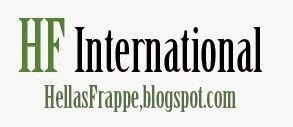Greece’s Health Food Council (EFET) today ordered the withdrawal of MARVEST deep frozen Minced Meat and Cevapcici. In routine controls, EFET detected the pathogenic becterium Escherichia Coli ( E.Coli ) 0157.
According to a press release from EFET, it is not the same strain that caused deaths in Germany, but is equally dangerous, says a statement on EFET’s website (Open the PDF to see pictures & warning here - warning it is in Greek) .
EFET urges consumers who have already purchased such products to refrain from consuming them.
The E.Coli has been detected in Frozen Minced Beef (500g) and frozen Spicy Meatballs/Cevapcici (1000g) packages, with expiration date November 6 & 8, 2011. The products are been sold in German Chain LIDL Hellas in Northern Greece.
The HPA guidance on avoiding E. coli infections is as follows:
- Wash your hand thoroughly after using the toilet (or helping others including changing nappies), handling raw meat, before meals and after contact with animals.
- Cooking all minced meat products (i.e. burgers, meatloaf, meat balls etc.) thoroughly, until the colour is the same all the way through, and no blood runs from them;
- Ensure that refrigerators are working correctly, bacteria grow more quickly at temperatures over 4°C;
- Only leave cooked foods, meat and dairy products out at room temperature for a short time;
- Store uncooked meats below cooked meats and salad vegetables to avoid dripping juices onto ready to eat food;
- Store uncooked and cooked meats on different plates, avoid all contact between raw and cooked meats;
- Thoroughly wash all salad vegetables that will be eaten raw, do not prepare them with utensils that have also been used for raw meat;
- Children and the elderly who are particularly susceptible to the severe effects of VTEC should avoid eating or drinking unpasteurised dairy products;
- People who have been ill should not prepare food for others for at least 48 hours after they have recovered;
- Boil any drinking water if you are unsure of it's source;
- Do not swim in water that you think may be contaminated by cattle and sheep in nearby fields.
The National Travel Health Network and Centre (NaTHNaC) is funded by the HPA and healthcare professionals and members of the public can find more information about travel health, including country specific advice, by logging onto their website: www.nathnac.org





